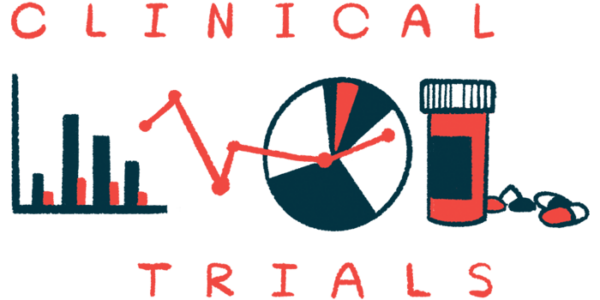3 trials of Vir’s hepatitis D combo treatment now up and running
ECLIPSE program testing tobevibart plus elebsiran against bulevirtide
Written by |

The first participant has been enrolled in ECLIPSE 3, a Phase 2b clinical trial testing Vir Biotechnology’s combination treatment of tobevibart and elebsiran against bulevirtide in people with chronic hepatitis D, also called hepatitis delta, the company announced.
Bulevirtide is conditionally approved under the brand name Hepcludex in the European Union for treating chronic hepatitis D, but does not have clearance for use in the U.S.
ECLIPSE 3 is the third and final trial in the company’s ECLIPSE clinical program — testing the tobevibart-elebsiran combo globally — to get up and running.
“People living with chronic hepatitis delta urgently need new options to treat their disease,” Marianne De Backer, PhD, CEO of Vir, said in a company press release. “With the strong foundation of our previous data and the proven expertise of our team, we believe our registrational ECLIPSE program will validate the potential of our combination of tobevibart and elebsiran to establish a new standard of care in both newly diagnosed and previously treated patients with chronic hepatitis delta.”
Hepatitis D is an inflammation of the liver caused by the hepatitis D virus (HDV), which only affects people who are already infected with the hepatitis B virus (HBV). Individuals infected with both the hepatitis B and D viruses are at high risk of progressing to symptoms such as irreversible liver scarring, known medically as cirrhosis, and liver failure.
The World Health Organization’s International Agency for Research on Cancer last month classified the hepatitis D virus as carcinogenic, or cancer-causing. People with hepatitis D are up to six times more likely to develop liver cancer than those infected with HBV alone.
First 2 ECLIPSE trials launched earlier this year
Tobevibart, also known as VIR-3434, is designed to stick to the viral particles of HBV and HDV, stopping the viruses from getting into liver cells. Meanwhile, elebsiran (VIR-2218) aims to reduce the production of HBV proteins that the hepatitis D virus needs to infect liver cells.
Vir expects that the combination treatment, administered via subcutaneous, or under-the-skin, injections, will strongly suppress HDV and prevent potentially serious complications.
In an ongoing Phase 2 clinical trial, called SOLSTICE (NCT05461170), treatment for six months with tobevibart plus elebsiran was shown to reduce HDV levels to below the detection limit, or by a certain degree, in all chronic hepatitis D patients.
Vir is now running the three ECLIPSE trials to further test the treatments together in chronic hepatitis D patients with or without cirrhosis.
The Phase 3 ECLIPSE 1 trial (NCT06903338), being conducted in the U.S. and regions with limited bulevirtide access, expects to enroll about 120 adults with chronic hepatitis D. Participants will be randomly assigned to receive the treatment combo or deferred therapy. The first patient was recruited in March.
The study’s main goals are to evaluate safety and the effect of treatment on a composite measure of blood HDV levels below the limit of detection and normalization of ALT, a liver damage marker, after 48 weeks, or nearly one year.
The second Phase 3 trial, called ECLIPSE 2, enrolled its first participant in late July. That trial is testing the effects of switching to tobevibart and elebsiran in chronic hepatitis D patients who have not achieved a sufficient response with bulevirtide.
Trial data may support approval requests for hepatitis D treatment combo
Should the data be positive, results from ECLIPSE 1 and 2 will be used to support regulatory applications seeking approval of the experimental treatment combo for people with chronic hepatitis D in both the U.S. and Europe.
The third trial, the Phase 2b ECLIPSE 3 study, “is designed to provide important supportive data to help establish access and reimbursement in key markets,” the release stated.
Taken together, our ECLIPSE trials are designed to demonstrate the potential of our tobevibart and elebsiran combination therapy, including breadth of response and dosing convenience.
In ECLIPSE 3, chronic hepatitis D patients who have not received prior bulevirtide treatment are randomly assigned to receive either the tobevibart-elebsiran combo or bulevirtide. This trial’s main goal is to assess whether the experimental combo is superior to bulevirtide at helping patients achieve blood HDV levels below the limit of detection after 48 weeks.
Mark Eisner, MD, Vir’s chief medical officer, said the company is “encouraged” by the results of clinical testing thus far.
Now, Eisner said, “taken together, our ECLIPSE trials are designed to demonstrate the potential of our tobevibart and elebsiran combination therapy, including breadth of response and dosing convenience.” He added that “these are key aspects for improving patients’ quality of life and supporting long-term treatment adherence in real-world settings.”



